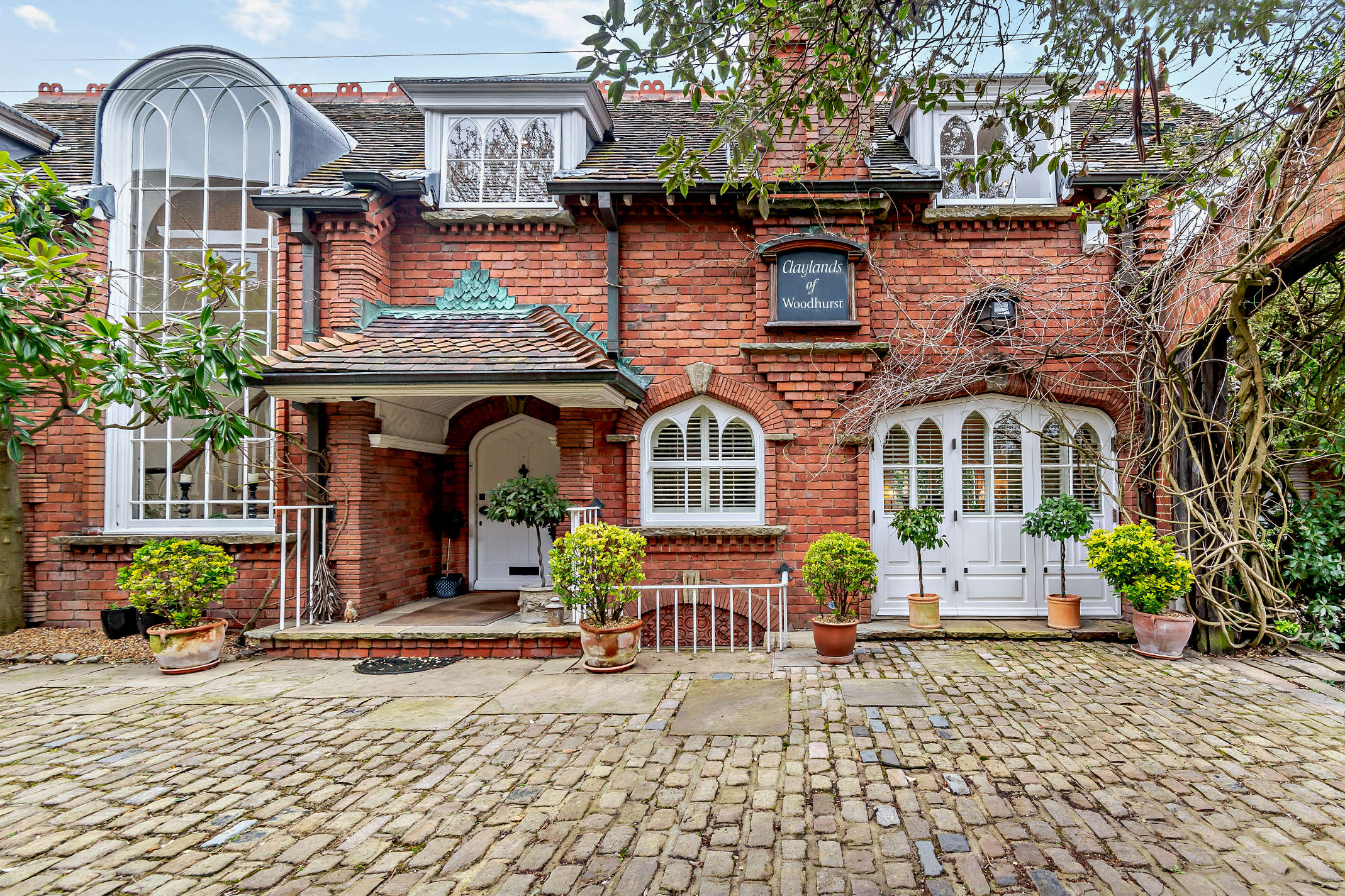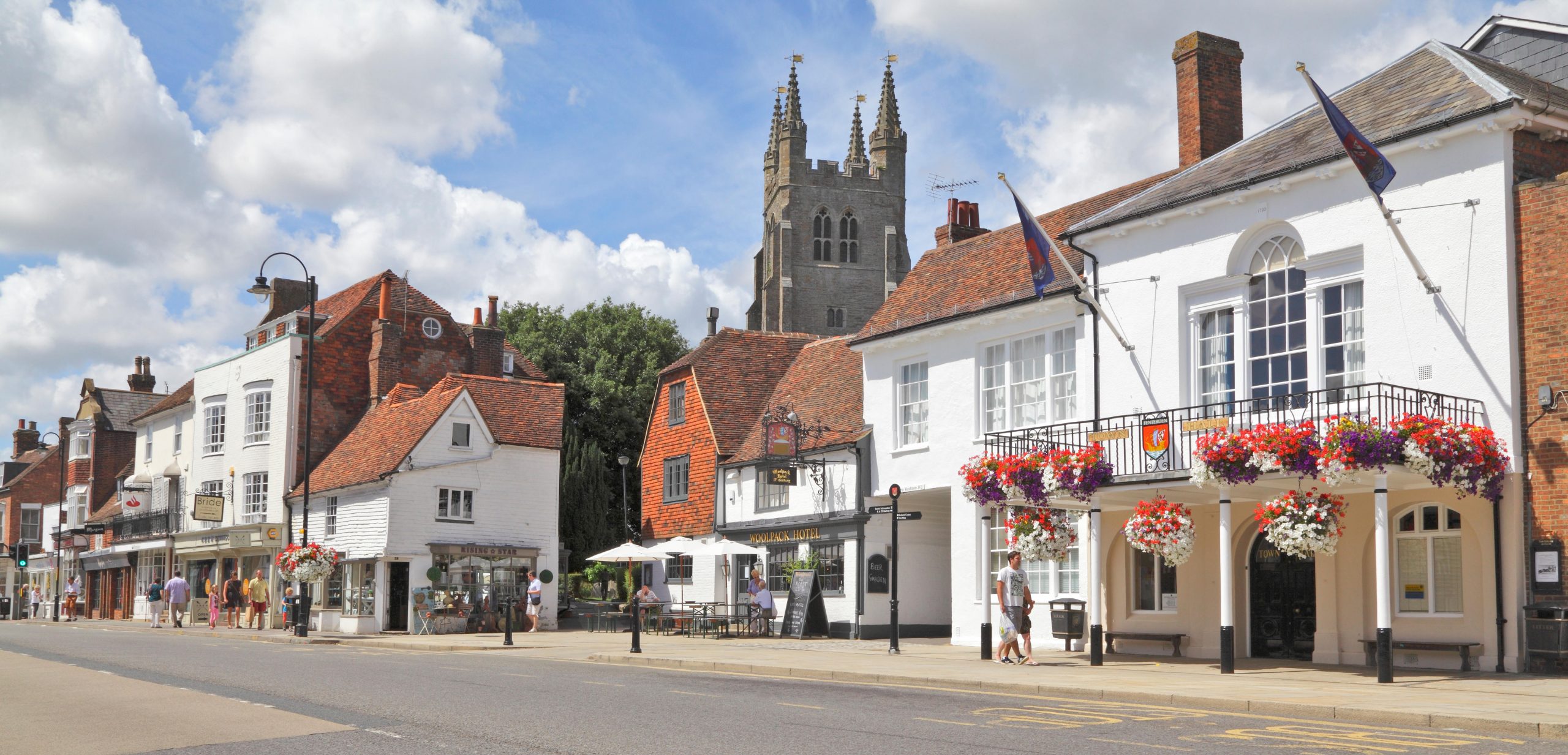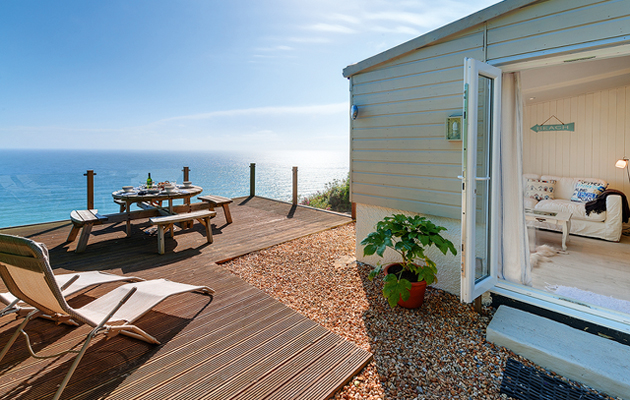Phil Spencer on the property market
Phil Spencer believes that heavy showers are on their way in the property market but a downturn isn’t all bad news


In the weeks since I wrote my previous column for Country Life, the continued ‘demise’ of the housing market has been widely commented on, especially as several indices have reported weak data. An imbalance in supply and demand is one reason the market has weakened. According to Hometrack, there was a 6.7% drop in new buyers during May. Yet supply has increased, with the number of properties for sale up by 20% since February. Demand has been affected by confidence and the restricted mortgage market.
New data shows the number of mortgages approved for house purchase fell from 63,000 in March to 58,000 in April, about half the level of a year earlier. New data from the Nationwide shows an even more extreme slowdown in May, but I prefer to look at changes in three-month data, as it gives more of an overview. Looking at the graph, we can deduce from the percentage price drop shown in Nationwide figures that average values of houses are now back to levels seen in early 2007.
Increasing uncertainty continues to weaken confidence, and we are still seeing a virtual stand-off between buyers and sellers. Buyers have been holding out for further price falls, and sellers have been refusing to budge. Everyone seems to know it’s been raining but just not on them.
The net result is a 34% fall in the number of transactions, which is widely predicted to worsen through the summer. If an increasing proportion of transactions are forced sales, this would have a more serious impact on the housing market and, indeed, the economy. Economically, we are entering a new phase. In recent years, house prices have shot up during a period of low general inflation and, consequently, we have benefited more than we have been able to identify.
‘Real’ inflation-adjusted house prices were rising more sharply than we could actually appreciate. Now, the opposite is true we have falling prices in an environment of rising inflation, which means that ‘real’ house prices are declining more sharply than cash prices. This could get serious. The bitter pill for the housing market is that this new inflationary environment may prevent the Monetary Policy Committee from cutting interest rates any time soon. Notwithstanding this, some people still wish to move or need to sell, so, as far as the national mainstream market is concerned, prices are likely to come down further as the number of unsold properties climbs. Therefore, I expect things to get worse before (assuming the mortgage market has eased) conditions start to improve.
The expected pockets of resilience will be for quality family homes and anything in the super-prime bracket. Consequently, the very top end of the market remains the preferred sector to be involved in, and, although even London is now being affected by the down-turn, the super-prime market is outperforming the mainstream right across the country.
The £5 million-plus market is particularly strong, which is a result of this ‘wall of wealth’ chasing a finite amount of property. For the time being, it seems the more you spend, the safer you are and not just in London. I was involved in a bidding situation earlier this month on behalf of one of my Garrington clients for a special house in Devon with a guide price of £5 million. There were six other British bidders (no foreign money), and the eventual price was in excess of £7 million.
Sign up for the Country Life Newsletter
Exquisite houses, the beauty of Nature, and how to get the most from your life, straight to your inbox.
The best sells; the rest is sticking. It goes without saying that a downturn in any market will present opportunities, and the property market is no exception. I keep meeting wealthy investors looking at setting up vulture funds, and there is certainly no shortage of capital arising from 15 years of economic prosperity. It always surprises me that, when the market softens, so many people trading upwards fail to see a potential drop in price as a relative one, which can be more than recouped by purchasing under similar conditions. But that is precisely what ‘sentiment’ is all about, and the reason why it affects activity to such a great extent.
If you want to move now, set a realistic asking price and don’t look for a new home until you’ve found an interested buyer, or you run the risk of negotiating both deals from a weak position. The costs of moving are steep, so when buying, this is the time to be picky and price sensitive. Always keep an eye out for opportunities to add value in the future and thus reduce the necessity to move again. There is no denying that we are in the midst of a downturn, but all markets are cyclical, and history shows that house prices in this country have an upward trend.
There are many disadvantages to living on an increasingly popular island, but, although it may not feel like it right now, we do have a housing shortage and an increasing population which will support house-price growth in the years ahead. Meanwhile, let’s not talk ourselves into depression, and try to remember that a house is first and foremost a roof over our family’s heads. For more information about Garrington Home Finders, visit www.garrington.co.uk
Country Life is unlike any other magazine: the only glossy weekly on the newsstand and the only magazine that has been guest-edited by HRH The King not once, but twice. It is a celebration of modern rural life and all its diverse joys and pleasures — that was first published in Queen Victoria's Diamond Jubilee year. Our eclectic mixture of witty and informative content — from the most up-to-date property news and commentary and a coveted glimpse inside some of the UK's best houses and gardens, to gardening, the arts and interior design, written by experts in their field — still cannot be found in print or online, anywhere else.
-
 About time: The fastest and slowest moving housing markets revealed
About time: The fastest and slowest moving housing markets revealedNew research by Zoopla has shown where it's easy to sell and where it will take quite a while to find a buyer.
By Annabel Dixon Published
-
 Betty is the first dog to scale all of Scotland’s hundreds of mountains and hills
Betty is the first dog to scale all of Scotland’s hundreds of mountains and hillsFewer than 100 people have ever completed Betty's ‘full house’ of Scottish summits — and she was fuelled by more than 800 hard boiled eggs.
By Annunciata Elwes Published
-
 What to expect when you're expecting (to move to the countryside)
What to expect when you're expecting (to move to the countryside)On March 28, agents Michael Graham will be showcasing some of their best countryside properties at their west London office.
By James Fisher Published
-
 Property Talk: When is the right time to downsize?
Property Talk: When is the right time to downsize?Sometimes our homes can get too big for us, meaning it’s time to downsize. Here, we speak to those involved with the process.
By James Fisher Published
-
 How to win in the property market: Tips from some of Britain's best buying agents
How to win in the property market: Tips from some of Britain's best buying agentsWhether looking for the perfect family home or negotiating on price, buying agents do the heavy lifting–and are well used to analysing the market. Carla Passino gets advice from a few of the best.
By Carla Passino Published
-
 Top tips on renting your holiday home
Top tips on renting your holiday homeThe holiday-home market on the Cornish coast looks set for a lively summer. Arabella Youens finds out how to make the running costs bearable.
By Arabella Youens Published
-
 Tips and advice for holiday home owners
Tips and advice for holiday home ownersWith the start of the summer season nearly upon us, more and more country-house owners are dipping into the short-let scene.
By Country Life Published
-
 Property guide to Elstead
Property guide to ElsteadFreddie Mack shares the secrets of Elstead in Surrey, a prime spot for young families looking for properties outside London near good schools
By Country Life Published
-
 Property guide to Cheriton
Property guide to CheritonIf you're considering buying property in or around Cheriton this year, take a look at our property guide which covers where to buy, what prices to expect and where to have fun in the area
By Country Life Published
-
 Make your holiday let work for you
Make your holiday let work for youIf you're considering renting out your holiday property prepare by reading this first
By Country Life Published
